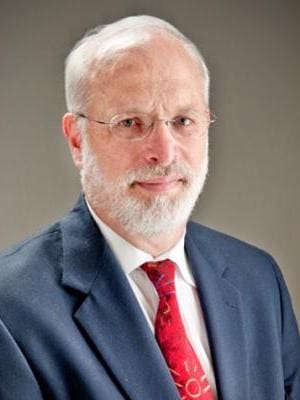Editor’s note: The column below is excerpted from the Rosh Hashanah sermon by Rabbi Fred Guttman at Temple Emanuel in Greensboro, N.C.
This past summer during the debt crisis, I happened to hear Jackson Browne’s classic song “Running on Empty.”
I asked myself whether we as a nation are “running on empty.” The answer was yes.
We are living in extraordinary times. We just commemorated the 10th anniversary of 9/11. The past decade has not been a good one by most accounts.
The manufactured debt crisis in Congress this past summer was a sad example of how we are running on empty as a nation.
I was in Washington, D.C., at this time, and I heard the same message from both Republicans and Democrats. Our government is indeed broken.
Yes, the debt is a problem, but last summer I could not help but feeling that defining the great national crisis as debt was an example of “running on empty.”
Consider the following. Here in Guilford County, N.C., we are facing 10.8 percent unemployment, and 19 percent of our county’s citizens are on food relief.
Since 2007, median household income in our county has fallen by 13 percent (or on the average of $6,000). Twenty percent of those in this county live in poverty, and 18 percent of the population has no health insurance, up 4 percentage points since 2008.
Single-parent families, especially, have been hit hard, and millions have simply given up on ever working again. Nationally, our infrastructure is crumbling. Unlike many countries, we have no high-speed rail.
States, including our own, are cutting funds for education and firing teachers, thereby imperiling our future and lessening our ability to compete on the global stage.
Tuition raises have made affording college difficult for many middle-class parents and students.
We have made little or no progress in addressing the environmental problems of our planet, and our climate crisis is worsening.
We seem mired in two endless wars and continue to spend our treasure and sacrifice our soldiers for causes that no longer seem to be in our national security interest.
There is great danger that the poor and senior citizens could be deprived of their Social Security pensions and their Medicare and Medicaid health needs.
As a nation, we are indeed “running on empty.” The long-term consequences of this will not be good for the United States.
A recent poll indicated that 60 percent of the citizens of our country want Republicans and Democrats to compromise.
This is especially true of the so-called “Super Committee,” which, if it fails to reach a compromise, will lead to across-the-board cuts.
In my opinion, this would be irresponsible on the part of the committee. We want more from our elected officials.
Compromise is an important value in Jewish tradition and can be seen in two ways.
The Bible tells us, and it is written on the wall of our sanctuary, that we are to write the words concerning our love for God “al mezzuzot baytecha,” on the Mezuzahs or doorposts of our homes (Deuteronomy 6:9).
Most Jews have a Mezuzah on the doorpost to the entrance of their homes. A Mezuzah may be put on almost any door to a home except for a bathroom.
The Mezuzah is one of the greatest examples of compromise in Jewish tradition. Almost 1,000 years ago, the great medieval commentator Rashi taught that a Mezuzah should be placed in a vertical position.
Fifty years after Rashi, another great rabbi named Rabbeinu Tam wrote that a Mezuzah should be placed in a horizontal position.
Here you had two of the greatest rabbis disagreeing over no small matter. Eventually a compromise was reached and, to this day, the optimum way to hang a Mezuzah is at a 45-degree angle.
I pass this symbol of compromise every time I enter my home, and it is meant to remind me of God’s presence and the need to compromise.
An important concept in Judaism is called “Shalom Bayit” or “peace in the home.”
According to Jewish tradition, the Divine presence rests in a home when Shalom Bayit is there.
Married couples will tell you that the only way a marriage can work is if each partner shows willingness to compromise, even if the result is not the way each individual would have desired.
According to our tradition, if we want more of God’s presence in our country, we and most especially our politicians will have to learn to compromise, for compromise is critically important to the welfare of the nation and community.
It might be the only way that, as a nation, we can “fill our tank.”
RabbiFredGuttman is rabbi at Temple Emanuel in Greensboro, N.C.

